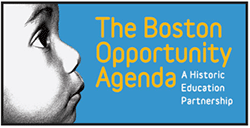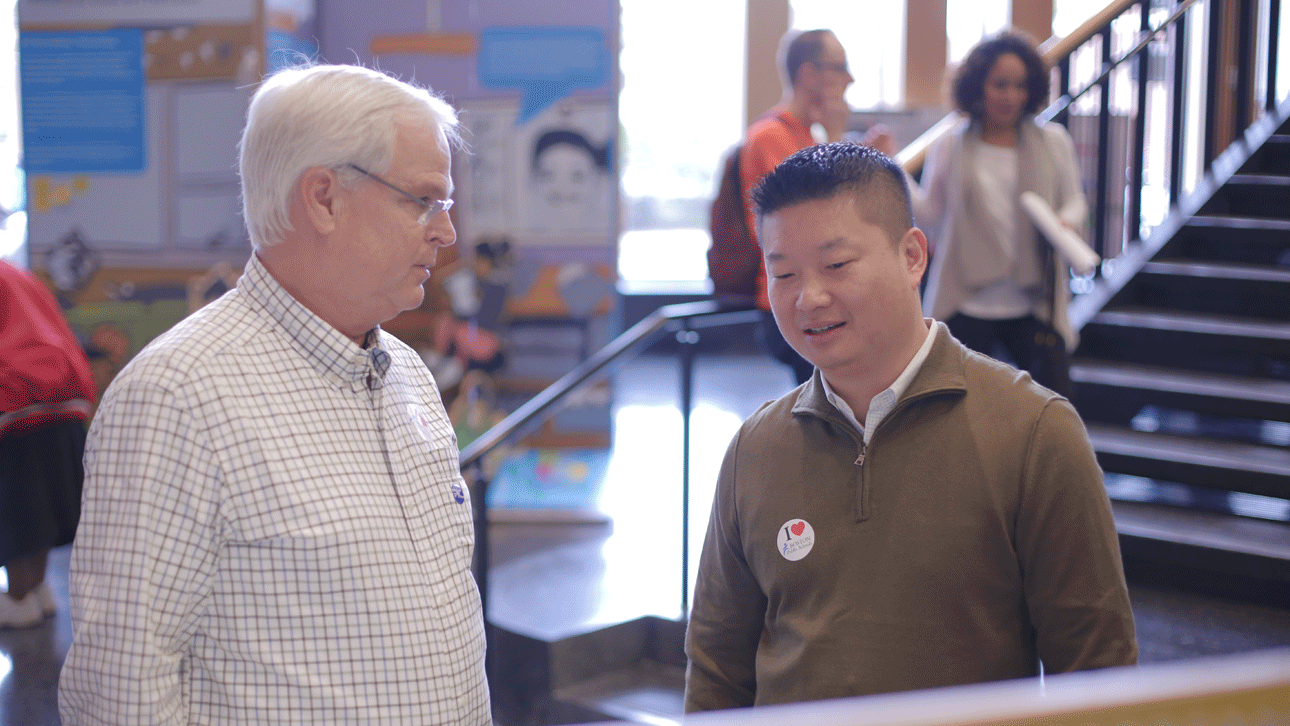High School Redeisgn
Crafting a Future Vision
Boston Public Schools students are the leaders, scholars, entrepreneurs, advocates and innovators of tomorrow. Boston families deserve nothing less than a world-class innovative education system with welcoming schools that are working to transform the lives of all our children. The job of BPS is to prepare its graduates to be productive, successful workers and citizens.
Today, a quality secondary education is not available to all Boston students. Many of our high schools need to update their teaching and learning approaches to provide the tools necessary for success in postsecondary education, career and life. Boston’s High School Redesign (HSReD) Initiative was created by the BPS and the City of Boston to address these challenges.
In its first phase, HSReD aimed to build a shared community vision for the defining elements of a high-quality, modern high school learning experience. A six-month public engagement process that reached more than 2,000 students, teachers, administrators, parents and other community members gathered thoughts and feedback on what students should know and ideas about what schools of the future should offer. A set of design principles were created to guide the initial work. A number of pilot projects commenced across the district and were used to inform phase two including a design process at Madison Park Technical Vocational High School and a student-led high school redesign book published at Margarita Muniz Academy in partnership with 826 Boston.
During the second phase, the Boston Opportunity Agenda worked with the BPS, the Mayor’s Office and a wide variety of stakeholders to create a citywide definition of College, Career and Life Readiness. The definition builds on the HsReD principles and ties them to tangible outcomes by providing a framework for describing not only what a student should be able to do but also the experiences that are necessary to build those competencies. The BPS has adopted the definition as its North Star.
Throughout the initial period of public engagement around HSReD and the work to create a citywide definition of College, Career and Life Readiness, there has also been significant attention to increasing the rigor of high school academic instruction, expanding meaningful student engagement with Career Technical Education, and continuing to create opportunities for college and career exploration. Several high schools are introducing (or expanding) the use of Project-Based Learning, standards-based performance tasks to assess student learning, and new career technical education programming. This work is outlined below. There has been an explosion of interest in creating dual enrollment opportunities for students with local two- and four-year colleges. Finally, planning and early implementation of several “Linked Learning” pathways and for creating three new school designs has begun.
Simultaneously, the BPS is currently engaging in a planning and landscape analysis focused on how to support off track youth to persist through secondary school. They have been working with the Parthenon Group to analyze the educational pathways of on and off track high school students and to explore options for how to strengthen outcomes for students who have fallen off track to graduate. BPS also worked with Springpoint to identify and catalogue activities, programs and initiatives at local high schools that support students through to graduation and include exploration of post-secondary options. Together the actions taken to date are laying a foundation for system and school based changes that will support increased engagement in school and stronger outcomes for all youth that will be pursued over the next several years.
The current phase of HSReD combines improvement strategies, redesign initiatives and innovation initiatives. It includes central office and system changes, new supports and strategies for existing high schools and the development of new program models. For the most part, it is not about launching new schools. While much emphasis has been placed on this around the country, launching a new school does not necessarily result in the broader system changes and innovations that improve high school learning for all students.
To guide the work during the 2017/2018 school year, the secondary school office at BPS has established the following goals:
Increase Access to Rigorous College Coursework and Decrease Remediation Course Enrollments
- Core subjects prepare students for college and career
- Opportunities for students take college level courses toward certificate programs and/or academic degrees while in high school Increase the Landscape of College + Career and Technical Education Offerings
- Professional skills and industry-related knowledge are part of academic coursework and provide context for learning
Create a Continuum of Work-Based Learning Experiences
- Real-world experiences, including mentoring, job shadowing and internships, provide opportunities to explore careers
Graduate All Students College, Career and Life Ready
- Such supports as counseling and supplemental and/or remedial instruction help students develop their own success plan
Moving Forward: The Next Phase
Intentional career pathways designed to align with these goals are under development or are underway at Brighton High School (Arts and Media) and Excel High School (Business Technology), Charlestown High School (C-Town Tech and C-Town Business), East Boston High School (e.g., Design and Visual Communication, Hospitality Management, STEM—AP, Aviation and Biotech), Madison Park Technical Vocational High School (e.g., Automotive Design, Culinary Arts, Metal Fabrication and Plumbing) and Edward M. Kennedy Academy for Health Careers. Other innovations, such as Intrepid Academy at Hale Reservation—a nature immersion semester model—is underway at Another Course to College and New Mission and TechBoston Academy is collaborating with STEAM Studio Education Foundation, the MIT Edgerton Center and the BPS Office of Innovation to develop student-centered and hands-on approaches in science, technology, engineering, arts and math (STEAM.)

